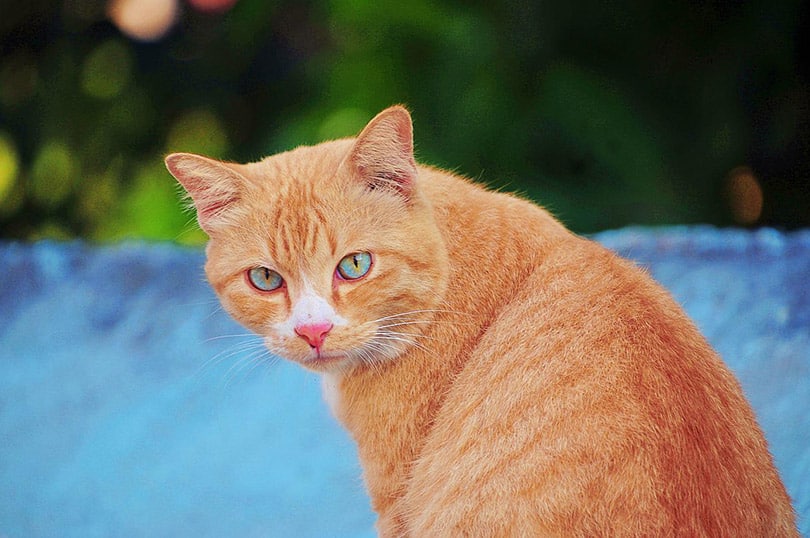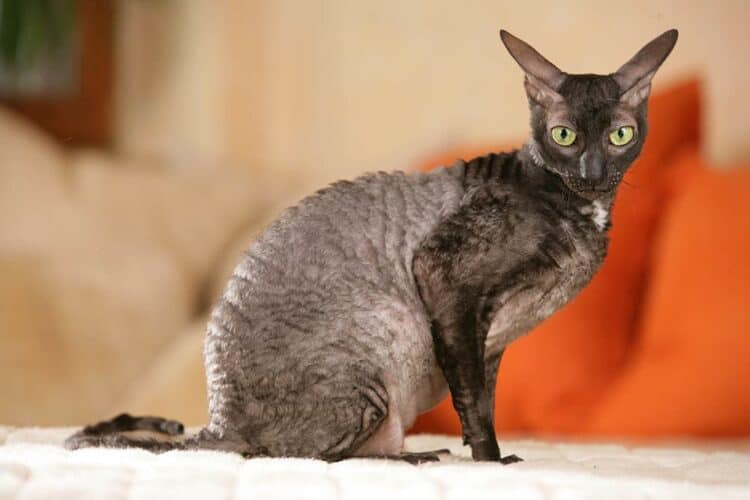It’s hard to interpret a cat’s behavior. Are your kitty’s aloofness and stubbornness due to a lack of intelligence, or are they smart but just don’t care what you think? These questions have long plagued cat lovers everywhere.
It’s not easy to determine how intelligent cats are compared to humans. We’re both mammals, but that’s the only similarity. Our bodies and brains were designed to carry out different tasks. Is a cat “smarter” when it comes to hunting mice? Absolutely. Are we “smarter” when it comes to solving math problems? Of course.
The big question here is, how does a cat’s brain work? Quite well, it turns out. Your kitty’s cerebral cortex has approximately 300 million neurons. That part of the brain controls decision-making and problem-solving. You know, the big questions like, “should I nap on the sofa or the chair?” and “how do I get out of this cardboard box?”
All jokes aside, the cerebral cortex also controls your cat’s memory and language interpretation. Your kitty may not come running when they hear their name, but their ears likely perk up, and they may even turn their head in your direction. As for memory, how eager is your cat to get in the car? Your pet may not enjoy traveling in a car if the only place they travel to is the vet’s office.
There are several reasons why we often misunderstand a domestic cat’s intelligence. Let’s look closer at how we measure intelligence and why comparing cats and dogs is not fair.
Cats Aren’t Willing Test Subjects
We don’t know how smart cats are because they aren’t eager to show us, and unlike humans, there is no way for a cat to agree to participate in a study. Research into feline intelligence has hit some significant roadblocks. One research team attempted to work with 99 cats but only got usable data on fewer than half. These felines kept the researchers on their toes by escaping into air ducts and acting disinterested in treats. Many cats aren’t motivated by human approval, which may not be a fair measure of intelligence.

Cats and Dogs Are Challenging To Compare
Cats are often branded as less intelligent because we compare them to dogs. They are both domesticated animals, but that’s where the similarities end. Dogs are eager to please and trainable. You can teach a dog to sit, walk on a leash, and even shake hands. On the other hand, most pet cats don’t crave your approval.
While cats are more independent, that doesn’t mean they don’t love their humans. You might notice that your kitty follows you from room to room or even cries out when you leave.
Conclusion
Dogs were domesticated long before cats and have undergone decades of intense breeding efforts. Cats, on the other hand, domesticated themselves. According to Science magazine, ancient felines entered into a “mutually beneficial relationship” with early farmers in modern-day China. These felines kept rodents out of stored grains, and in return, humans provided shelter and likely a head scratch or two. That’s an arrangement that sounds pretty smart, after all.
Featured Image Credit: Shutterstock














